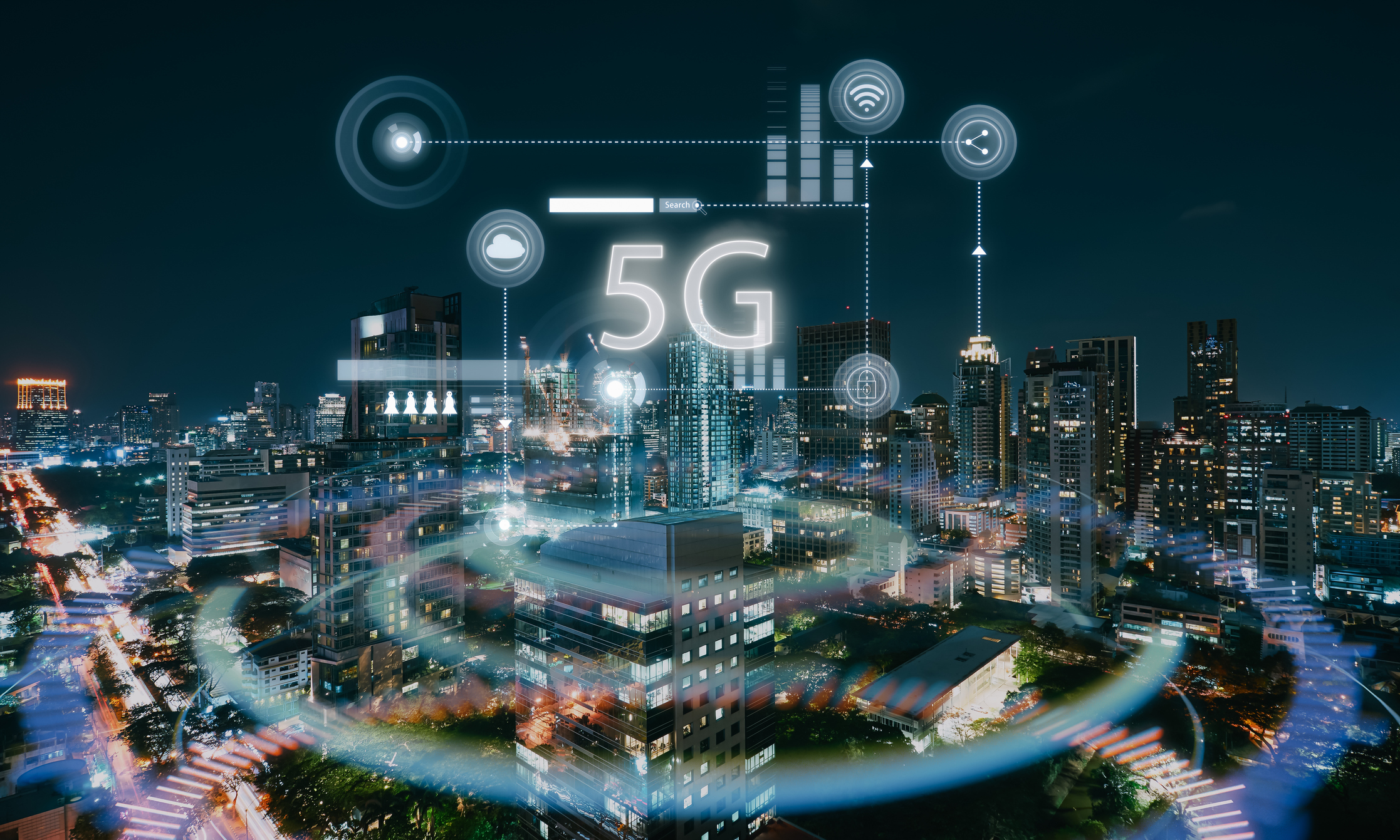
by Devone Sansbury
5G is the new, faster, fifth-generation wireless network technology that’s fueling innovation and technology advancements in businesses, homes and communities around the globe. With 5G, large amounts of data can be transmitted quickly and efficiently across a multitude of connected devices. Delivering peak speeds of 20 Gbps, 5G is 500 times faster than 4G LTE’s 100MBps. (Can you say no lag time?!) 5G networks use millimeter waves to flexibly manage speed and range, changing the bandwidth to accommodate user and data demands.
The first 5G technologies are available today. Mobile phone companies, businesses, consumer product companies, government agencies and other organizations around the world are in process of developing, installing and upgrading cell towers, devices and other equipment. They all aim to tap into the potential of 5G-enhanced mobile broadband, mission-critical communications and IoT.
This all sounds amazing. With faster speeds and vastly expanded capacity, 5G promises nearly endless benefits for business, home, recreation and national security.
The big question is, is 5G good for us?
Pros of 5G
5G will make life seem like a utopia for technological advancements, including
- Self-driving smart vehicles. 5G-powered artificial intelligence (AI) systems improve the reaction time of self-driving electric vehicles, making them safer and more ubiquitous. That will make delivery of goods and services faster with fewer accidents.
- Smart Cities. 5G will help bring to practical life the smart city vision, a dream come true for affordable and reliable connections and services that support a better quality of life.
- Gaming will change forever. VR systems will allow more in-depth and realistic gaming. Just think about being a part of your favorite game, rather than simply playing it from the outside looking in.
- Robust software applications. The setbacks developers faced due to size and download restrictions in previous wireless communications will no longer be relevant. They will now be free to create robust applications without fear of crashing or lags.
- Medical improvements and innovations. One of the most important impacts of 5G is medical advancements. 5G will allow better patient monitoring and quicker downloads of patient data, creating reliable telemedicine and making robot-assisted surgeries a standard.
5G Caveats
5G will help in so many technological advances! Still, it has some downside and cautions.
- Redefining human work. With more use of AI, there will be less use for the human counterpart to do some of the work. Many jobs today will be replaced by an AI interface of some sort, creating a need –and opportunity – to redefine the jobs that humans do.
- Expense. Getting to 5G is an expensive endeavor. Think of the cost to create and secure a new network. 5G will need the installation of new cell towers because 5G uses smaller cell towers that need to be installed closer to each other than previous generations. Additionally, there’s the cost of developing and purchasing phones and other equipment built for 5G.
- Health concerns. There is fear that the radio frequency of 5G networks will cause harm due to radiation from an increased number and density of cell towers.
- Hackers. As much as 5G will be a field day for developers, it will be the same for hackers. The bad actors, too, will have faster speeds and opportunities for innovation. Viruses and malware will now become more creative and robust. Will data be safe, will you be safe? The answer is, we will have to wait to see what tomorrow brings.
5G is a new technology, but it’s not our first new technology. We’re excited by the possibilities; we’re diligently monitoring the risks; and we’re optimistically hoping that the world uses 5G for the betterment of humankind.